The region revolutionising the Dutch diet
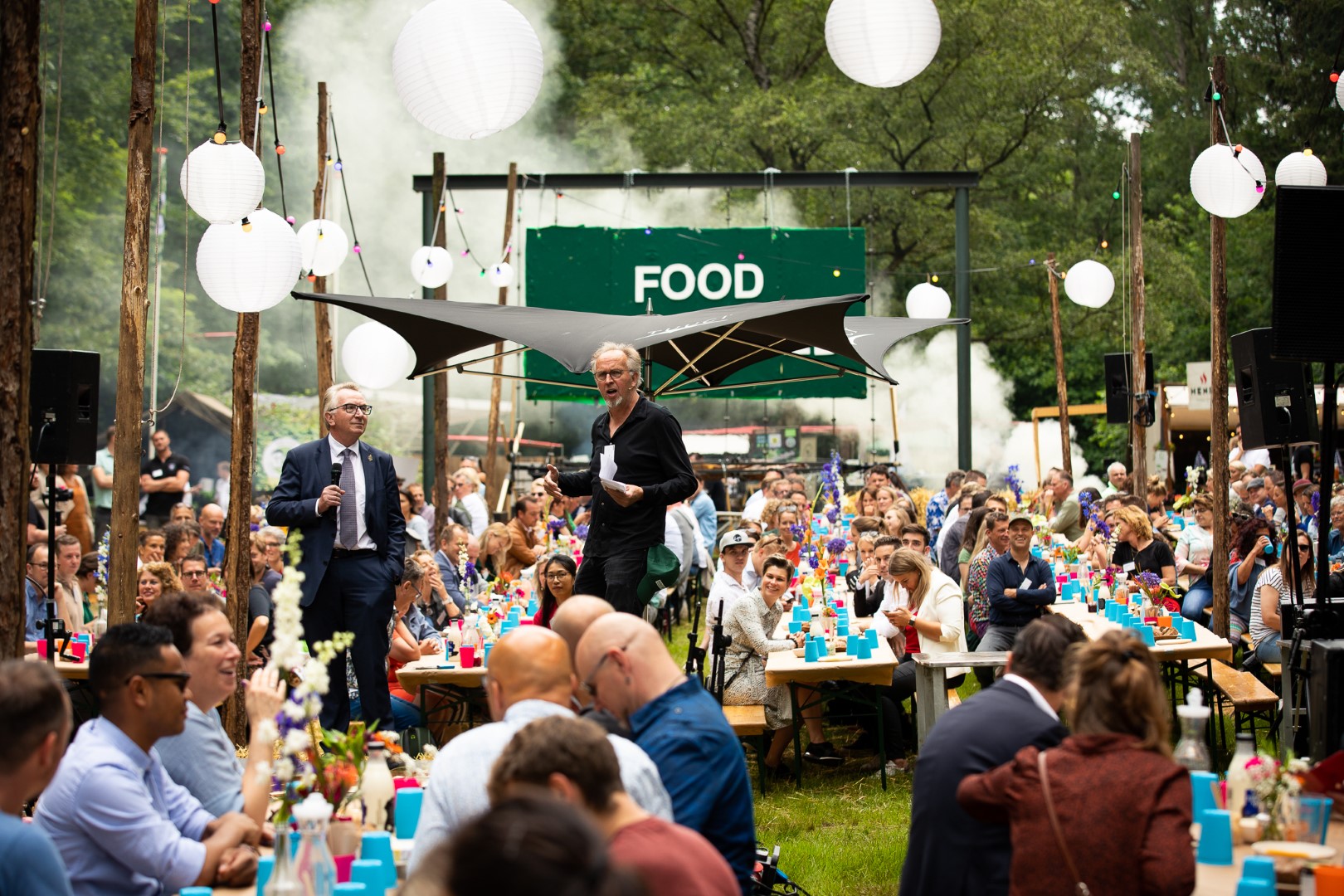
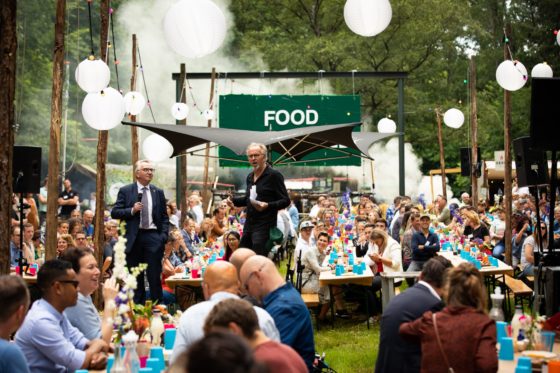
Ethical and environmental concerns are changing what the Dutch put on their plates, but where this foodtech transformation is occurring is somewhat surprising.
Livestock farms with patchwork pastures encircle the village of Holten in Overijssel, but in a small industrial park within, steering Dutch diets in a different direction, is the headquarters of Vivera, one of Europe’s largest producers of vegan alternatives to meat.
Evolution
The evolution of the Dutch diet is no clearer than in the east of the country, where intensive meat farming has been serving up protein-rich produce to consumers for decades, earning the nation the dubious distinction as the largest meat exporter in the EU. But the farms now have new neighbours, as innovators of plant-based alternatives flock to Gelderland and Overijssel, a meat and dairy producing region with an unlikely new moniker: Vegan Valley.
Per capita, the Netherlands is Europe’s biggest consumer of plant-based meat, with favourites such as kibbeling and bitterballen now available flesh-free. According to a report published by Rabobank in June, sales of meat and dairy substitutes in Dutch supermarkets have doubled since 2017 and are expected to grow by 15% annually over the next 15 years.
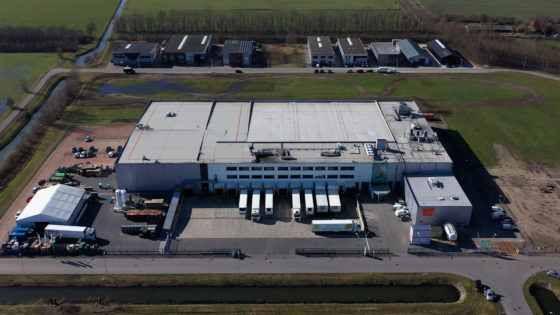
Look east
Agrotech’s migration east has much to do with Wageningen University, an internationally renowned centre of agricultural research and a magnet for innovators, employers and investors at the cutting edge of the food production industry.
The approach is overwhelmingly collaborative. Foodtech accelerator StartLife is based in Wageningen, as is the Protein Cluster, a global platform for plant-based food solutions and a knowledge hub for all those in the field.
‘We like to share and work together with each other,’ says Kees Pieters, project leader for the protein transition in Gelderland, which is helping to reduce the environmental impact of animal agriculture (14.5% of all greenhouse gases) by facilitating the switch to vegetable-based protein. ‘It’s a part of the [Dutch] culture, and [so is] always keeping ahead of developments, rather than protecting your intellectual property.’
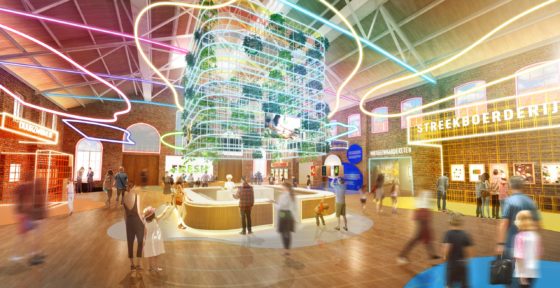
Corporate interest
Big corporates are attracted to the region, too. Despite the name, dairy firm FrieslandCampina, who include meat substitute brand Valess in their portfolio, moved their research and development centre to Wageningen in 2010, while Upfield, a Unilever spin-off producing vegetable-based fats, is due to open a €50m new food science centre there later this year.
Consumer acceptance and the involvement of multinationals has sped up the transition to meat-free proteins, says Frank Giezen, CEO of Ojah, a producer of soy-based plant meat, headquartered in Ochten. Founded by a team of born and bred Gelderlanders, Ojah has been supplying fast food joints and well-known brands such as the Vegetarian Butcher since 2009. The company has since grown 50-100% each year, with a turnover of €30m.
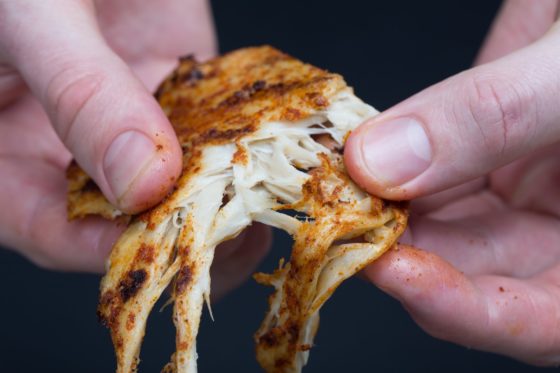
Meaty investment
‘What’s really striking, and that wasn’t the case ten years ago, is you see all the big food companies like McDonald’s all opening up [to plant meat],’ says Giezen. ‘People think that it’s quite normal that you always have a plant version of each product you can buy.’ Giezen expects the trend to accelerate, eventually overtaking meat. ‘We see a bright future for the meat alternative business,’ he says.
Investors are fast buying into that future; and as their market share declines, even the meat industry is eager to get a bite of the cherry. Earlier this year, Brazilian meat company JBS bought out market leader Vivera, cashing in on the competition. Poultry giant Plukon (headquartered in Wezep), and Bolscher, an Enschede-based meat processing company, have both launched vegetarian products in recent years to improve their carbon profile and tap into a lucrative market that threatens to eat into their meat profits.
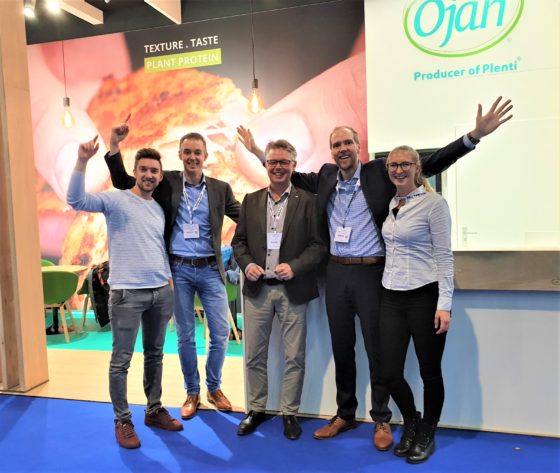
Sustainability
Profits and climate targets are driving change in the east, often working hand in hand, as meat farmers introduce green products to restore their reputations and claw back some cash during an ongoing epidemic of devastating factory fires, suffocations and reported animal rights abuses.
As for consumers and policy makers, it’s global warming which has hit home most, says Kees Pieters. ‘We all know that meat and dairy is not good for a sustainable food system and it’s so inefficient,’ he says, pointing to the space, time and resources needed to cultivate feed for livestock, rather than feeding crops directly to the consumer. ‘Some people say it’s about animal welfare, but I do not hear that very much,’ he says.
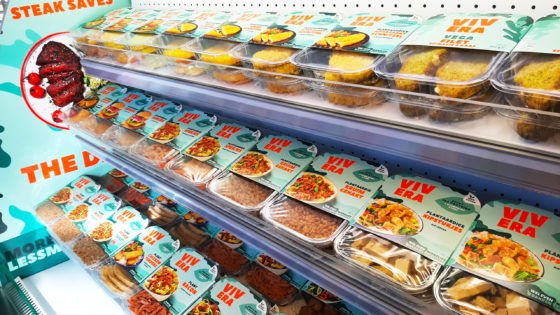
Less is more
To reduce the Netherlands’ reliance on imports and support the transition towards plant-sourced protein, the ministry of agriculture wants − by 2030 − to quintuple to 100,000 hectares the land given to protein-rich crops, such as soy, lupin and faba.
But, says Pieters, self-sufficiency in the Netherlands is still a long way off. ‘If you grow all protein crops, you will still have 10% of the amount we need … It needs a lot innovation to increase the yield.’ Underwater algae cultivation and factory-grown fungal mycoprotein offer fast-growing alternatives to beans and peas and minimise land use, but more consumers still need to be convinced.
The interim solution may be harder to swallow – for omnivores and vegetarians alike. ‘The first step is to eat less,’ says Pieters. ‘That will be better than vegan alternatives.’
Thank you for donating to DutchNews.nl.
We could not provide the Dutch News service, and keep it free of charge, without the generous support of our readers. Your donations allow us to report on issues you tell us matter, and provide you with a summary of the most important Dutch news each day.
Make a donation